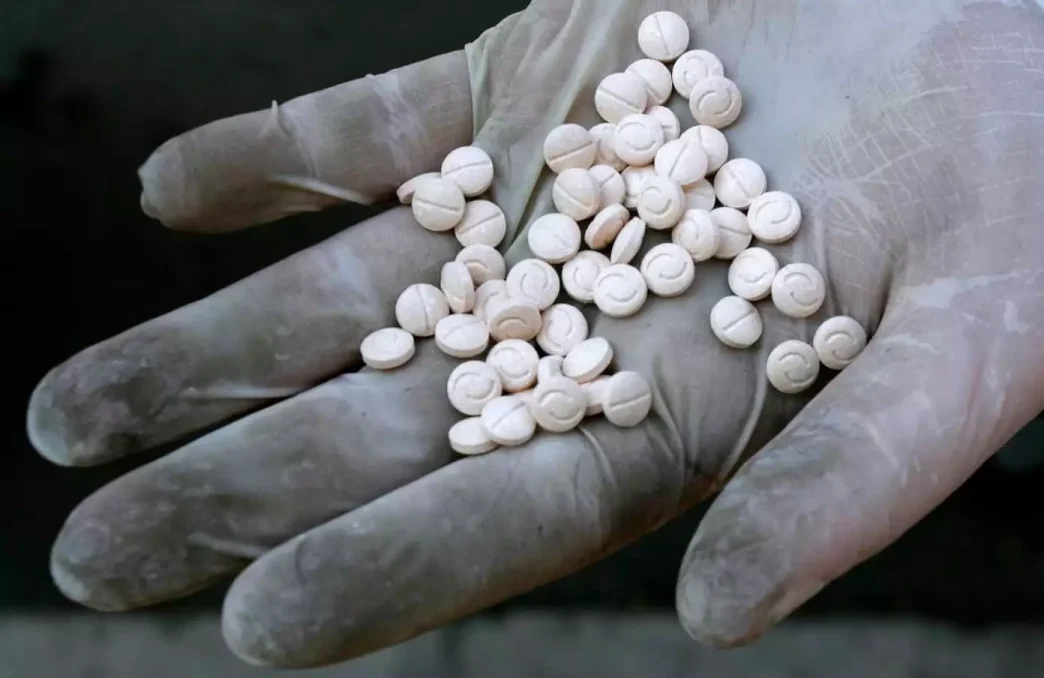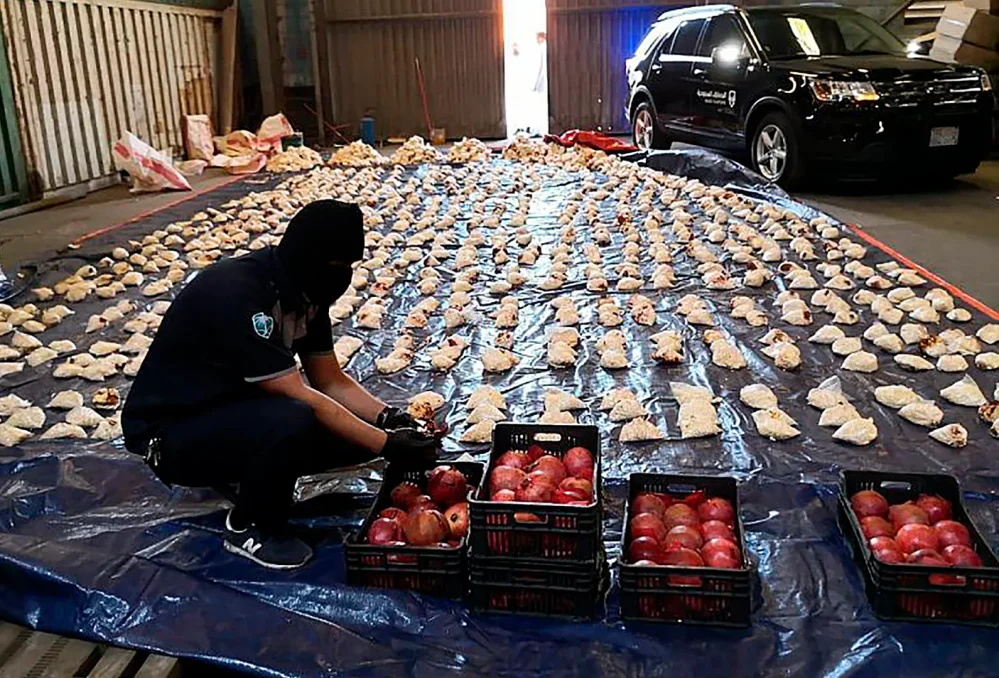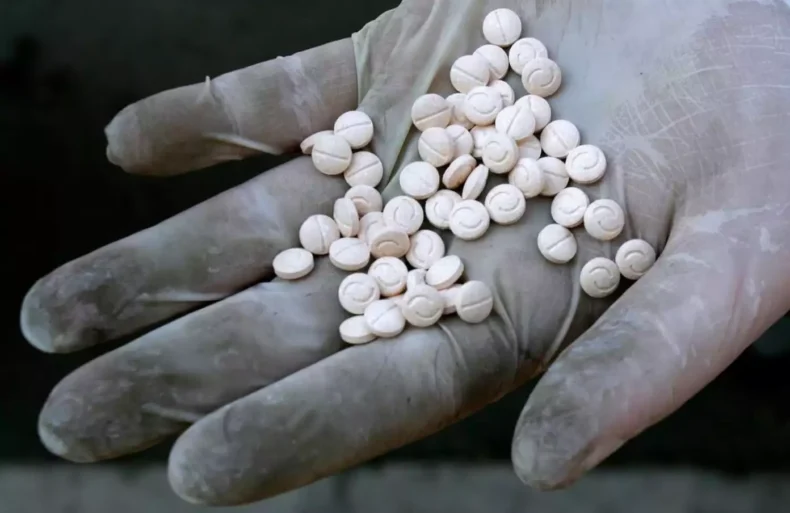Europe is bracing itself for a possible drug influx that has already hooked the Middle East. The highly addictive drug is called Captagon which is similar to amphetamine. It sells for about $3-$25 per tablet. The UK government estimates nearly 80% of the drug is being produced in Syria. Individuals and groups tied to the Syrian President Bashar Al-Assad and his ally the Lebanese militia Hezbollah are primarily behind its production.

“The Poor Man’s Cocaine”
Captagon is already extremely popular in the Middle East. Everyone, from teenagers to meagre wage earners such as construction workers, is an active user of the drug. It is called the “poor man’s cocaine” as it is easy to make and reportedly triggers bursts of energy, euphoria, productivity, and delusions. It is widely used by Iraqi and Syrian militants.
The drug was first manufactured in the 1960s by Germany as a pharmaceutical remedy for ADHD and depression. Later one of its active ingredients- fenethylline was blacklisted by the UN in 1986 due to its addictive properties. This led to the discontinuation of its use by most countries.
However, new production units sprung up in Bulgaria and the Middle East. Leading researchers at the New Lines Institute estimate that Captagon has given rise to a business worth $10 Billion in the last three years. The majority of this revenue goes to Assad and his allies. On the contrary, Assad and his government deny his involvement in the manufacture and trade of the drug.
According to experts, ever since the attack of the Saudis and their efforts to engage with Assad to impede the flow of drugs, producers have been devising new routes and markets. Thus, Captagon poses a threat to Europe and to the world. Carolina Rose from New Lines Institute said that like any other illicit economy, these smugglers are becoming even more sophisticated in trying to reach new markets.

Threat for Europe
Based on an intelligence report, two Senior European Union Officials who chose to remain anonymous informed about the high possibility of captagon trade intensifying in Europe. He added that Syria’s need for cash and Assad’s desire to export addiction are the primary reasons why increased drug influx is a worrying issue for Europe. The United States and European nations have backed protests and political opponents that have sought to remove Assad from power.
Europe is at risk of seeing a similar scenario such as in Iraq and Turkey. Both These countries were initially popular trans-shipment points for captagon. But eventually, they evolved into a robust market for the drug. In August this year, Iraq busted a key drug network after discovering a captagon factory.
Carolina Rose has warned that the threat is not limited to countries on the periphery of Europe such as Greece and Italy, where authorities found 14 tons of Captagon in 2020. Central European countries are also in danger of being exposed to the drug. While narcotics get trafficked through new routes, some intermediaries are paid in drugs which creates spillover into the local market.
The expanding network of captagon trade is concerning even for the US. The US lawmakers have introduced new sanctions against Assad. London, Brussels, and Washington introduced sanctions on Syrian and Lebanese individuals this year. The sanctioned individuals include three cousins of Assad.
A total of 1 billion captagon pills were seized in Saudi Arabia in the last three years out of which a bulk was destined for the Kingdom. The drug has also become extremely popular in Jordan and UAE













